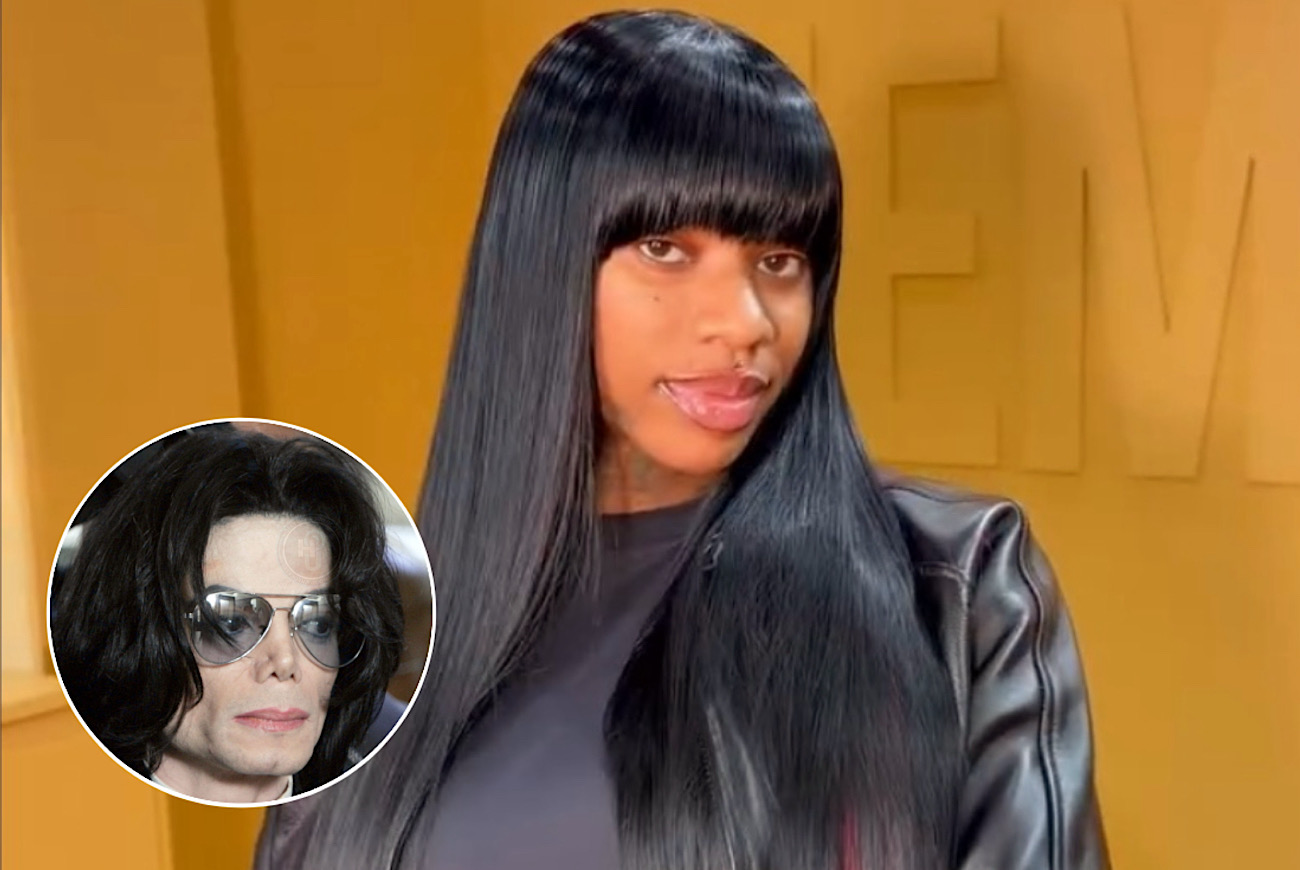Playing Donald Trump’s mentor Roy Cohn in Ali Abbasi’s The Apprentice is not the first time Jeremy Strong has tackled recent American history. Before the actor became synonymous with Kendall Roy in Succession, he played parts in The Big Short, Selma and Parkland. While the actor feels a slight discomfort discussing acting choices for a film whose main subject “poses such a clear and present danger to you and I,” Strong is no less proud of the work. “I am happy with how it turned out and happy that I went for it,” he says. “I almost didn’t.”
DEADLINE: What made you run toward this role and this film?
JEREMY STRONG: You run toward it, because it’s so dangerous. Because it’s been done before brilliantly. It was done by Al Pacino [in Angels in America] in a really definitive way, that had such an impact on me. It was done in Citizen Cohn by James Woods, and Matt Tyrnauer released that brilliant documentary, Where’s My Roy Cohn? It almost felt like after the Matt Tyrnauer documentary came out, there was no reason to do something mimetic or narrative. Because the picture that it offered felt so definitive and complete, how could you possibly improve upon that? But I want to find a precarious limb to go out on. I feel like that’s where you grow as an artist. This one felt like it lit up all those columns in me of something that I wasn’t sure if I could do. And that felt terrifying in all the right ways.
DEADLINE: What was the most insightful thing you found out while researching Roy Cohn?
STRONG: I remember reading an interview with Dustin Hoffman years ago where he said, “The question that you have to ask is, ‘How is this character in trouble?’” And Roy Cohn just had so much pain underneath the… I wouldn’t even call it a facade because it was pretty well integrated into who he was. But somewhere deep down in there, there’s a cleft in his spirit, and that was the part that was most interesting to me — how to try and embody that and how to both render him in an exact way as possible to who he was in life, without gilding anything or imposing an interpretation of it. I don’t want to make him more or less sympathetic than I found him to be. I guess I found an anguish and a loneliness in him as well as a brutality and a ruthlessness. And those polarities always make the most fertile soil as an actor.

From left: Jeremy Strong as Roy Cohn and Sebastian Stan as Donald Trump.
Briarcliff Entertainment/eEverett Collection
DEADLINE: What made you feel like you were safe in Ali’s hands?
STRONG: Ultimately it came down to that. It’s a choice, to bet on a filmmaker. His film Border is so wild and visionary. It has this phantasmagoric but very controlled quality in the filmmaking. I thought in Ali’s hands it would yield an unknown variable, the punk rock sensibility that he has. And beyond that, I got a sense, when I first met with him, that he would give me the freedom to do my thing, which I needed in this case. He would give me a lot of latitude, freedom to improvise, freedom to have the sense of authorship of what we were doing. I think my approach to these things is not just learning the words on the page. My approach is trying to prepare the whole life of the character and then show up ready to express that life. You have to really master your subject in a way that maybe even the filmmaker hasn’t, and I always feel like my job is to fight for the character. I had a sense that I could trust that Ali would be collaborative in that way, which he was.
DEADLINE: In this movie, Roy Cohn starts out strong and his health and strength decline throughout. What were the challenges in embodying him physically?
STRONG: All that stuff is challenging. I think voice is such an important part of character. It might be the most integral part in a way, our voice is so fundamental to who we are. It is like cracking a code. It’s a war of attrition that you have to wage for months and months until the voice becomes your own. That was probably the most important thing for me. The rest is almost surface stuff. Wardrobe is such a tool in telling a psychological story of character. I have a belief, though, that that stuff has to be unconscious, otherwise it’s cheap. My intention is never to plan or prescribe anything, but if you spend enough time absorbing it, I do trust that by some process of osmosis, those things enter into your unconscious and then they just come out of you at different moments, unbidden. That’s where it can transcend caricature.
DEADLINE: How do you feel about essence vs. accuracy?
STRONG: I feel a great responsibility to be accurate. I don’t feel like, oh, it’s my interpretation and I can do whatever I want. So, when Roger Stone said that this was the Roy that he knew — as dubious a source as that is and as ambivalent as I feel about getting that from him — it actually was very gratifying because my goal, at the end of the day, is to be faithful to Roy, even more than being faithful to the film. I don’t think I agree with anything Roy ever said or did. I’m very different than he is, but I do feel like my job, and I take it so seriously, is to be faithful to him and who he was.
DEADLINE: Both you and Sebastian Stan, as Donald Trump, are playing real-life people who are very distinctive. Was it tough to nail the broadness of it?
STRONG: It’s interesting because it is broad. These are larger-than-life characters, and they’re monolithic in terms of our understanding of them. But I think about, well, two things. There’s something that Stella Adler said: Sometimes you have to be as large as life. People have size and you have to be unafraid. I would not claim to be fearless because I have plenty of fear, but we did have to be fearless in our work on this. That’s something that Sebastian was, and this one required me to be. The other thing I think of is Laurence Olivier, in his autobiography, wrote about this idea of theatrical courage. My favorite performances in film have always had that — a kind of theatricality and size, which takes a good deal of courage to do on film because film is an unforgiving medium if it detects dishonesty. So, you have to find a way for it to be both authentic and large. And that was a great challenge and one that I think Sebastian and I both embraced and were very daunted by.

Strong as Roy Cohn.
Pief Weyman/Briarcliff Entertainment/Everett Collection
DEADLINE: What did the pressure from the outside feel like?
STRONG: This experience was really feet to the fire every day because we were aware of what was at stake in terms of getting it right and the feeling that it could come out in the world at a time that could be impactful in terms of this election. Washington Post journalist Robert Kagan said that fascism won’t come to America with jackboots and salutes. It will come with a television huckster. That’s what the movie’s about. And that’s so deadly serious right now that I almost feel conflicted doing press. The themes of this and what it’s exploring are so dark and pose such a clear and present danger to you and I and everyone we know that it’s a strange thing [to talk about] the aspects of movie making that become about you and your performance. But I am happy with how it turned out and happy that I went for it. I almost didn’t do it.
DEADLINE: You almost turned it down?
STRONG: Yeah. I just didn’t know if I could do it. I didn’t have a lot of time; I came on late. And I knew how prepared I’d have to be. I just didn’t know if I’d get to the place where it caught fire. But then I had dinner with a friend of mine, a great Danish writer-director named Tobias Lindholm, and he said, “What would you do if you were not afraid?” And then I said yes.
DEADLINE: I walked out of the theater thinking how messed up it was that I’m out here feeling sorry for Roy Cohn. It’s also brilliant storytelling. Did your perception of him change as a result of doing this?
STRONG: Yeah. The magic trick of the film is that you think Roy Cohn is the devil, and then you see that transference happen and you realize that it’s a Frankenstein movie: the monster that he’s created has surpassed him, and Roy still has some vestiges of humanity in him. Roy really believed the things he did was for the good of humanity and for the good of America. And it’s scary, even as an actor, to flip over into the other side of seeing things. But I also think we live in this time where everyone is so intractable in the way they see things, and it’s so easy to demonize anyone who doesn’t see things the way we do, that it’s a part of what I do that I find really illuminating. And I was able to see through Roy’s eyes, as dark as that is.

Read the digital edition of Deadline’s Oscar Preview magazine here.
DEADLINE: It is interesting how much conversation there is about whether or not we should humanize monstrous people. Do we need to be that reductive?
STRONG: As an actor, you can’t afford to be reductive. And it’s not either/or, it’s both/and. He can both have tenderness and sweetness with his llama Lollipop who lived with him in Greenwich, Connecticut, and with his different lovers, and in his life in Provincetown — which was a secret life that he had, in which he was more openly out and more accepting of himself. And at the same time, he could be the most vile, hateful, odious person imaginable. And I guess as an actor, that’s the degree of difficulty that you prepare for your whole life, to be able to attempt something like that.
DEADLINE: You’re Springsteen’s manager Jon Landau in the upcoming Deliver Me From Nowhere. Has that been a something of a relief?
STRONG: I will say, I’ve been deep in Springsteen World the last couple of months. And god, Bruce’s gospel is a gospel of hope and redemption and love. That has been his whole thing since the early ‘70s. And being a part of that, and just spending time communing with his music and with those guys, it is a great tonic to Roy Cohn’s gospel of belligerence and hate.







